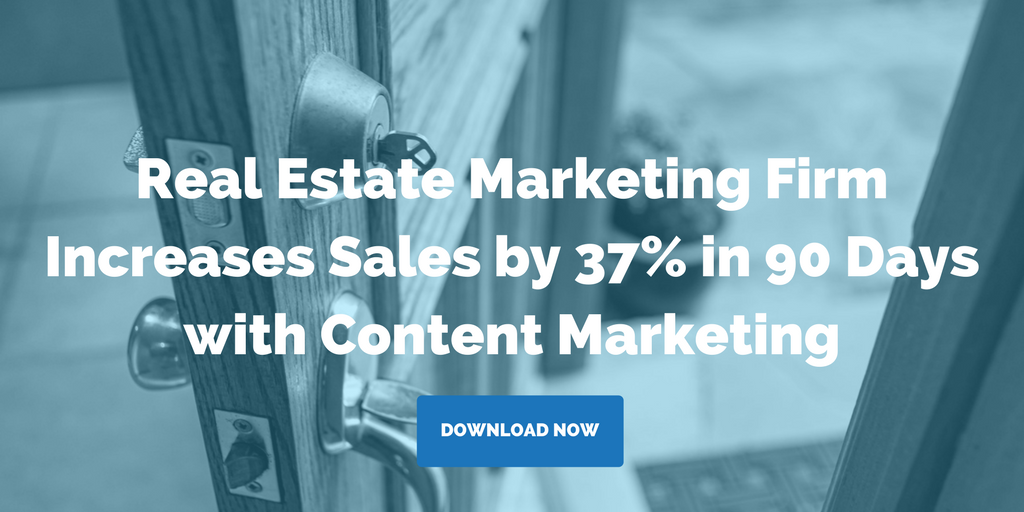Archive for the "Social Media" Category

Social Media Trends for 2018 Real Estate Marketers Need to Know
Augmented reality, streaming video, and local experiences are 3 social media trends to try in 2018.
If there’s one thing real estate marketers can be sure of in the coming year, it’s that social media will continue to dominate the marketing landscape. Social media presents tremendous opportunity, particularly if you’re aware of upcoming trends.
“While the job of marketing and selling a house once required a lot of legwork on behalf of the agent or seller, many of the tasks associated with listing and promoting are much easier thanks to social media,” says Realty Times blogger Megan Wild.
Here are 3 social media trends for 2018 that you need to know about.
3 social media trends for 2018
1) Augmented reality
Just a few years ago, this seemed like purely Sci-Fi territory. But what was once wild fantasy is quickly making its way into real life.
Last year, for example, Apple announced that the iPhone 8 and iPhone X would incorporate a new chip that enables users them to provide users with augmented reality experiences. Google Glass may have been a flop, but now Facebook, Google, and Snap are all also throwing their hats into the augmented reality ring.
So what does this mean for real estate marketing? This technology is still in its early stages, and the possibilities will continue to develop as capabilities grow. But already sellers are using augmented reality and virtual reality to display potential color themes, floor plans, and possible renovations.
2) Streaming video
As video capabilities on smartphones and other devices continue to skyrocket, services like Instagram Stories, Facebook Live, and Snapchat are changing the way people interact with the world. According to Livestream.com, “about 80% of consumers would rather watch a live video from a brand than read a blog, and 82% would prefer live video to written social media updates.”
If you haven’t already started to make use of these platforms, it’s time to jump on the bandwagon. What was once a cool idea for reaching your audience is now the expectation for brands.
You can optimize your videos in all kinds of ways, like location tags, titles, and targeted descriptions. “Buyers no longer have to spend their days traveling and visiting different open houses,” says Wild. And “instead of spending their time preparing hosting open houses to advertise their new properties, agents can use high-definition video to provide a detailed tour.”
3) Local and personal experiences
Every new technological boom comes with a price. Social media marketing is incredibly popular for a reason, but increased volume means an increased presence of brand-written content, which in turn leads to brand fatigue among buyers. As a result, local and personal experiences are moving into the forefront. Online consumers want local, interpersonal interactions.
While it may seem like more work, this is great news and presents a lot of opportunities for real estate marketers. Real estate is local by its very nature. The more content you share on social media that focuses on place (e.g. local restaurants, entertainment, community events), the more of a personal connection you forge with your audience. Ultimately, that connection is what social media is all about.
What social media trends are you trying in 2018?
Related posts:
- 4 Steps to Building a Successful DIY Content Marketing Strategy for Real Estate
-
How Will Facebook Marketplace Housing Affect Real Estate Marketers?
- 6 Social Media Don’ts for Property Management Companies
Archive for the "Social Media" Category

How Will Facebook Marketplace Housing Affect Real Estate Marketers?
Facebook Marketplace has added a Housing section, which lists property for sale and property rentals.
If you’re a real estate marketer, Facebook’s newest foray into the social marketplace is likely to impact your strategy. In November, the ‘Book announced that it would begin allowing users to search for housing rentals and sales on its Marketplace platform.
For those who are unfamiliar, Marketplace is Facebook’s answer to Craigslist — a platform that lets users buy and sell items near them. The new housing section allows individuals —including brokers, agents, and property managers — to list their available properties. Additionally, the company has partnered with Zumper, Apartment List, and other third-party sources to add “hundreds of thousands” of rental listings.
Listers can add 360-degree photos so potential buyers and renters can take a virtual tour from the comfort of their couches. Those searching for properties can filter by location, price, number of bedrooms, square footage, etc.
Facebook’s Bowen Pan says, “Marketplace is a popular place for people to look for a home to rent. Now that we’re adding listings from Apartment List and Zumper, people can search even more options in the U.S. to find a place to call home.” The company aims to “bring ease and convenience to customers” with this addition.
How should you approach Facebook Marketplace?
As a real estate marketer, this presents another opportunity to get your property in front of potential buyers and renters. Here are some points you need to know to successfully list your property on Facebook Marketplace Housing.
User search criteria
Facebook is using its powerful search algorithm to let users narrow their rental search based on location, price, size, number of bedrooms, and even if an apartment is pet-friendly. This means making sure all your listings have accurate and specific details. The more specific you get, the more your target audience can find you.
Facebook is location specific
As with Craigslist, Facebook Marketplace lets users select and search within their area. More than likely, you’re already keeping track of demographic data for your target buyer or tenant base. Make sure that as you list your properties on the sites that Facebook pulls from, or on Marketplace itself, that you’re keeping in mind that target demographic, and including location markers that will help your property show up in their searches.
Facebook’s goal is to be a one-stop shop
If you’re aware of this fact, it can help you. Facebook is positioning Marketplace to become a one-stop commerce platform for food, shopping, and even job hunts. How does this impact your marketing efforts? Know that when users come to Marketplace, they are primed to be interested in all aspects of their housing prospects — from dining to neighborhood attractions to community events.
This is where your content marketing strategy comes into play. By providing content about various types of information about the area surrounding your listing (top restaurants, employers in the area, what to do on a weekend, etc.), you’re poised to capture the lasting attention of your potential buyers or tenants.
Related posts:
- What Metrics Should You Track in Real Estate Marketing?
- Top 10 Real Estate Marketing Posts 2017
- 4 Tools for Determining the Best Time to Post on Social Media for Your Property
Archive for the "Social Media" Category

Facebook Lead Ads: Why Your Property Should Use Them
Facebook Lead Ads allow prospects to leave their contact information without ever leaving Facebook or Instagram, increasing the chances of conversion.
On pace to hit 2 billion users this year, Facebook obviously has reach. Yet only 45% of B2C marketers feel that their Facebook marketing efforts are working. So why is Facebook advertising not showing a greater ROI for your business?
Well, what kind of ads are you running? Are you using lead ads? If not, that’s probably one of the reasons.
How Facebook Lead Ads work
Facebook lead ads allow you to run lead-generation campaigns on Facebook and Instagram. This kind of social advertising shows an ad for your property within the newsfeeds of potential buyers and renters. Just set the parameters (e.g. demographics, location, etc.) for your target audience, and the network’s algorithm will identify who sees the ad based on information they’ve provided in their profiles.
But here’s the real kicker: Unlike other ad types, lead ads include a contact form that lets prospects show their interest by filling out the form with their details without ever leaving Facebook (or Instagram).
Need more convincing? Here at Fronetics Real Estate, we find Facebook Lead Ads one of the most effective for generating leads. Because they streamline the process through which prospects sign up to learn more about your property, it’s more likely they’ll convert to leads. Besides, you save time and money because you don’t have to create extra landing pages to get their contact information.
Lead generation made easy
These days, people expect that everything from shopping to job searching can be done on their handheld devices. Facebook Lead Ads make that true for people wanting to learn more about potential properties.
Here’s how it works: Prospects click on a lead ad, and their contact information automatically populates based on information from their profile. No leaving Facebook to visit the property’s website or taking the time to provide contact information necessary. Lead ads make submitting information as easy as two taps on a phone: one to open the ad, and one to submit the information.
“If you want to iterate through lead forms quickly, Facebook Lead Ads are a great way to collect the information without building new landing pages and creating tons of copy,” says Tony Adams in Visible Factors. “The contact forms appear natively on Facebook and Instagram. You can easily use them to sign people up to newsletters for drip marketing campaigns.”
In a prime success story, news and information site theSkimm wanted to expand its reach and increase its conversion rate, with the ultimate goal of attracting more highly qualified leads and significantly increasing its subscriber pool. After testing a number of different tactics, theSkimm created a series of Facebook Lead Ads. The ads featured the company logo to reinforce its branding and a ‘Subscribe’ link inviting people to sign up on the spot. The result was a 22% increase in lead quality at a cost per acquisition of just $1-2.
Creating and modifying your ads
As buyers continue to turn to their handheld devices for quick, easy information, Facebook lead ads will give your property the opportunity to capture new leads with the click of a button. But just like any form of lead generation, you need to monitor and tweak your Facebook Lead Ads for optimal results.
Through Facebook’s Ads Manager reporting interface, you can obtain reports about cost, impressions, and clicks. As with all marketing tools, consistent refinement is the key to success, particularly in real estate marketing. Lead ads can easily be fine-tuned to cultivate a larger target audience.
Facebook Lead Ads provide real estate businesses an opportunity to gain leads and a larger reach. If you haven’t tried this yet, we highly recommend switching over some of your social advertising budget.
Related posts:
- 6 Social Media Don’ts for Property Management Companies
- Start Your Property’s Social Media Program in 6 Steps
- Social Media Can Be a Strategic Weapon in Real Estate Marketing
Archive for the "Social Media" Category

6 Social Media Don’ts for Property Management Companies
Committing these social media don’ts when managing a property may get you in a heap of trouble.
It’s easy to get bombarded with suggestions on how to interact with your audience on social media. In fact, social media can be particularly tricky for property managers: for example, many tenants will bash your property for all the world to see for small issues or in an attempt to get a free month of rent.
But amid the endless barrage of ideas for what to do, it’s worth remembering that not all social media engagement is equal. Just as shying away from social media isn’t a good strategy, it’s also important to remember what not to do.
Let’s look at 6 specific don’ts for keeping your proverbial foot out of your business’ mouth online:
Social media don’ts for property managers
1. Don’t assume that just because you’re online, offline rules of communication and conduct don’t apply.
It may seem obvious, but it’s all-too-often forgotten. This is a good rule, and an easy metric by which to judge any content before posting: Your interactions with current and potential tenants online should measure up to professional interactions you would have in person.
2. Don’t re-post, re-tweet, re-gram, or re-share external content without a thorough check first.
Re-posting content that’s of interest to your audience is a great way to promote discussion and engagement, especially for the highly social business of real estate marketing. But don’t get sloppy. Remember that even if content didn’t start with you, if it’s posted on your property’s social media accounts, it represents your business, and can reflect on your property and professionalism. Make sure content is well-researched and from reliable sources. Want to re-post something controversial? Just be sure to include a disclaimer or explanation in your post.
3. Don’t forget that emotional intelligence is just as important for businesses as for individuals.
This one is especially key for real estate marketers, since real estate decisions are so personal. Never forget that behind every social media account is a human being. The bottom line: “Bring emotional intelligence to your social media management. Take the time to address any issues with compassion and understanding.”
4. Don’t ignore comments.
Social media is all about engagement with your audience. Yes, responding to every comment takes time and resources, but it is well worth the effort. A comment ignored sends the message that you don’t feel that your reader’s question, concern, or observation is important. Use comments as the opportunity they are to interact with your followers, and show them that you are ready and willing to address any issues they may have.
5. Don’t delete negative comments.
Another cardinal sin for real estate. Once it’s online, trust that people have seen it. Deleting a complaint will only make your business appear insensitive and evasive. Addressing negative comments demonstrates that your company is proactive about resolving issues and taking care of your tenants.
6. Don’t forget the basic principles of common sense and good judgment.
This one comes from John P. David of David PR Group. It seems like another obvious one, but people and businesses violate this principle all the time. Always have at least two pairs of eyes on everything you are going to post, and anything remotely controversial should be thoroughly vetted by as many people as necessary. When in doubt, David says, don’t post.
If your company has committed any of these social media don’ts in the past, don’t panic. These platforms offer an ideal place for renewing and tweaking your image. Invest in the creation of a good social media policy. Don’t give the enormously important task of social media management to a summer intern. And, for goodness’ sakes, remember you’re a human talking to other humans.
Related posts:
-
Social Media Can Be a Strategic Weapon in Real Estate Marketing
-
4 Tools for Determining the Best Time to Post on Social Media for Your Property
-
4 Steps to Building a Successful DIY Content Marketing Strategy for Real Estate
Archive for the "Social Media" Category

Start Your Property’s Social Media Program in 6 Steps
When launching a property’s social media marketing program, make sure you’ve thought through strategy, content, and audience.
Social media marketing for real estate is a must-do. The reality is that’s where the average American is spending his/her free time — nearly 2 hours a day, according to a recent study. Using platforms like Facebook, Twitter, and YouTube to market your property, you can:
- engage potential buyers
- build brand awareness
- elevate brand position within the market
- decrease cost per lead
- increase occupancy or sales
- improve retention
- and more
Sounds great, right? But where do you start? Which platforms should you use? How will you ever convince your boss that this is a valuable use of your time?
Starting your property’s social media program can seem like an intimidating task, especially if company leadership is skeptical of the benefits. Here are six steps to launching a real estate social media program that will grow your business to its full potential.
6 steps to start your property’s social media program
1) Speak in the right terms.
Convincing management that you want your team to spend more time on social media to gain “followers” or get “shares” could be a hard sell — even though that kind of engagement is key in real estate sales and rentals. To win support, focus your argument around the factors that are most important to them. Lead generation, lead nurturing, conversions, sales, ROI, profits: this should be the vocabulary with which you approach this conversation.
2) Create a strategy — and put someone in charge.
Only 11% of companies without a documented content marketing strategy find their efforts to be successful, compared to 60% of companies with a strategy in place. And that number rises to 86% when the company designates someone to lead the strategy.
Develop a content marketing strategy — inclusive of social media — that aligns with your goals for the property (e.g., more visits to the website, increased occupancy, better retention rates). And whether someone on your team heads up execution or you outsource that responsibility, the leader should continually monitor analytics and tweak the strategy accordingly to ensure the property’s social media program is meeting the designated marks.
Which brings me to…
3) Determine which analytics to track.
In real estate social media, shares, likes, and impressions speak to your brand exposure, so they’re important to track. But it’s important that you’re looking at more than just these surface metrics. (Read more about so-called “vanity metrics” here.) Leads generated, conversion rates, sales, and ROI are going to tell you if your efforts are helping your bottom line. If you have a good, flexible strategy in place, these metrics will help you adjust your efforts to ensure you’re achieving your business objectives.
4) Develop quality content.
Twenty-seven million pieces of content are shared every day — and a large portion of it is crap. A social media presence could be pretty pointless unless you’re not using it in a way that your followers find valuable. Good, quality content is the alpha and the omega, the key to engaging your followers.
One of the biggest mistakes real estate marketers make is using social channels to push a blatant sales pitch. You’ll quickly lose your audience that way. Your property’s social media should be about engaging target buyers or tenants, building brand awareness, and offering valuable and interesting information.
5) Decide which channels are right for your business.
Who are you trying to reach, and what are you trying to tell them? These are good questions to ask when trying to determine which platforms will comprise your social media program. You need to know who your target buyer/tenant is, and you need to know what kind of information you’re going to offer them.
There’s a wealth of data out there about who uses which channels and when. Most social media platforms also have their own built-in analytics tools that can help you determine the best time for engagement with your followers.
Another thing to consider: You’ll want to choose channels that you’ll be able to maintain regularly and which play to your strengths. If you don’t have the time, skill, or interest in taking regular photographs of things around your property, for example, Instagram probably isn’t for you. Remember, you’ll likely want to work through several different channels to reach a maximum number of potential customers.
6) Follow your competitors.
Following your competitors is a great way to stay up to date on what they’re doing, especially if you don’t have a ton of time or money for competitive research. And when I say “follow,” I don’t mean “copy or imitate.” I mean subscribe to their blogs, engage with them on social media, and like and share their content that you find meaningful for your audience. This way, you become part of the local conversation happening online, and you know exactly what your potential buyers and tenants are seeing from (and how they’re reacting to) your competitors.
Related posts:
- The Metrics You Should Be Measuring in Real Estate Marketing
- 6 Marketing Tasks Real Estate Marketers Can Outsource
- Social Media Can Be a Strategic Weapon in Real Estate Marketing
Archive for the "Social Media" Category

4 Tools for Determining the Best Time to Post on Social Media for Your Property
Determine when and where your target buyers are online to find the optimal time to post on social media.
Social media has changed the landscape for doing business, particularly when it comes to real estate. With the click of a button, companies are able to instantly communicate with untapped markets and potential buyers and tenants. Face-to-face interactions are often overshadowed by live streaming videos, tweets, chats, and likes. For real estate sales and rentals, the possibilities for social media marketing are virtually endless.
But it’s not enough to curate content for your social media platforms. Today’s social media users expect fresh, innovative ideas around the clock. And when this content is being shared is just as valuable as what is being shared.
There’s a lot of research out there that highlights the optimal time to post on various social media platforms. For example, marketing analytics software provider TrackMaven has published its Best Times to Post on Social Media Cheat Sheet, which breaks down posting by industry, brand, and product. It also offers general dates and times that can boost success.
But the truth is, there is no one-size-fits-all social media posting solution.
You need to take it one step further. You need to know the best time for your unique property to post content. You want more than just a general idea of when to post. You want specific information about your target buyers and tenants — when they’re actively scrolling, reading, watching, and liking your content.
As you get a sense for when your target audience is most likely to interact with your content, be sure to keep in mind the ideal frequency for real estate companies to post to each social media platform.
Determining the best time to post on social media
There’s a broad range of tools available that will analyze the personal data of your social media followers and help you compute the best time to post on social media. Here are four that we think offer the most useful information and are easy to use.
1) Hootsuite
Hootsuite is a social media management tool that can do everything from scheduling social media posts to measuring your social media ROI. The AutoSchedule feature lets Hootsuite determine the best time to publish a post or tweet based on when similar content performed well in the past. It also considers the platform and can publish the same message at different times based on audience engagement on each particular network.
2) Tweriod
Tweriod, a free Twitter tool that helps you know the best time to tweet, is changing the way companies approach their marketing tweets. It will evaluate up to 1,000 of your followers and their tweeting patterns, including schedule, interests, and retweets. You then receive an analysis of when your tweets will receive the most exposure.
3) Google Analytics
Google Analytics is a robust analytical tool for determining how web users are interacting with your digital assets, including social media. Three custom reports (Best Days to Post on Social Media, Best Time to Post on Social Network by Hour, and the Social Media Traffic by Date and Hour) offer real-time, in-depth insight. Best of all, Google Analytics is free!
4) SproutSocial
SproutSocial offers a customized dashboard with a quick overview of how your social media channels are performing. You also can gain deeper insight into your customers — like gender and age demographics, crucial information for real estate marketing. And you can assess your customer reach and what will work in your favor.
Creating a strong social media presence is essential for any property. But having a presence is just a starting point in understanding how to fully optimize these ever-changing platforms to work for you.
Using online tools to analyze when and where your content should be posted will enhance the value of your social media efforts. In short, you have the best chance of generating leads and closing deals by pushing your content through the right avenues at the right time.
Related posts:



